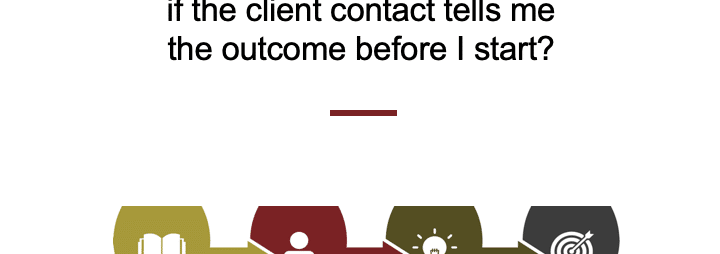What do you do if your client contact has already told you what your investigative outcome should be? This happens an awful lot. It is rare that a client is thoughtful and experienced enough to truly download a situation without expressing their opinion on the outcome. It is just human nature to make assumptions about the things we are experiencing and relay our perceptions.
Typically, the client isn’t trying to persuade me or convince me what my findings must be. They are open to being incorrect in their assumptions. I don’t think too much of it. I think it’s human nature to share conclusions about things as they’ve seen it. They’re already recognizing the flaws in their own logic by hiring you in the first place.
But most of the time that the fact that the client has hired an independent indicates they do, in fact, recognize that they’re making conclusions. So I just chalk it up to human nature. It’s what The client thinks. They’re making an educated deduction. Thank them for their time. Ask them why they think that, what evidence they have used to come up with their conclusions, and then go and do your investigation. I really don’t give it a whole lot of credence, honestly. Sometimes they’re right. Sometimes they’re wrong. Sometimes they’re somewhere in between. Mostly it’s somewhere in between.
What do you do if somebody has company information related to your investigation on a personal device? We ask if we can have it!
It can be a big issue because ownership of intellectual property as a whole thing, but as a neutral, unbiased, third-party investigator, you should not be getting into a scuffle about property rights. At the end of the day, if they have a thing and you need the thing, you need to ask for it. And if you can’t have it because they won’t give it to you, you need to ask why they won’t give it to you. And then all you can do with that is record that they have it, they reported they have it, you asked for it, and they reported you couldn’t have it, and this is the reason they gave me. Your duty is to document what you learned and conduct your investigation with the best information you have available to you.
